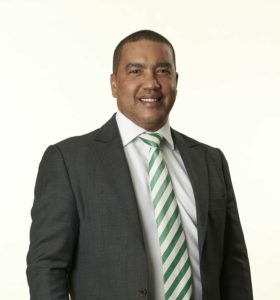By: Garth Napier, CEO of Old Mutual Insure

A COVID-19 event is probably the worst nightmare any leader can face. We started a few weeks before total lockdown to get ready for the change in how we work.
First thing was to put together a Crisis Management Team that bought us time to prepare. We could get 88% of staff ready to work from home. The plan was always to prepare for the top 15% to work from home. Now it was everyone. The big focus was the execution of the plan with customer communication the next big focus. Thereafter we looked at the Emergency Assist Business such as a burst geyser. That meant scenario planning around key services.
Experience grows leadership skills – My last role as Head of Pepkor, outside SA, was probably the best to prepare me for the current challenges. I worked in all the Southern Africa companies. The Zimbabwe experience, for example, taught me to manage uncertainty. Similarly in Angola and Malawi. A dropping oil price, no foreign currency etc. was a huge learning curve. Our strategy meetings were so diverse and filled with uncertainty.
The uncertainty today is very much the same. When the coup in Zimbabwe happened I also had to think of staff safety while keeping operations going. Those experiences assisted me to be much calmer than I might have been.
A fragmented value change – As leaders in the insurance industry, we will be facing several challenges. The short-term insurance industry is very fragmented as a value chain. Banks have a more linear client interaction process while insurance sees multiple hand offs during the process. We have a process between brokers, UMAs and Insurers. At claims stage we can go from broker to insurer and then handed to a supplier, procurement etc. We can also have tow trucks, repairers, brokers and assessors in the same value chain of one claim.
This industry runs on multiple different specialist skills. These only comes with experience and are not easily transferable. Operational and relationship skills in a multiple stakeholder industry needs specific diverse skills to manage the complexity. Underwriting and pricing and actuarial skills, to name a few. Then also practical management skills that can cope with the diversity. It is up to the leaders to develop and manage these skills within their companies and for our industry.
Furthermore, insurance as a service is more exposed to how technology is changing customer behaviour. In retail there is still a physical product while insurance is a virtual product, making the impact of fast changing technology, even bigger.
How will the shift to a sharing economy gain momentum/ request for more usage based products.
As far as innovation and changes go, COVID-19 is definitely driving usage based products. Motor is the best example as the shift was happening anyway. This is just speeding it up. Another development is vehicle sharing. Europe even has a Porsche sharing service. Our customers will shift from individuals buying insurance to more corporates, like a company owning a fleet of sharing vehicles. This will see our industry becoming less personalized and more commercial. We will probably also see fewer home owners, and more renters although contents will still need the same approach.
The type of assets clients want to insure is also changing, for example Cyber security Insurance. If data is the most valuable assets, it will need to be insured. The skills to underwrite that will have to increase. Corporate cyber insurance has been around for a while and we are seeing a fast increasing personal market for these lines.
We have certainly seen an acceleration in innovation and client behaviour change. As leaders we have to increase our own and the resilience of our teams to cope with uncertainty and change.



